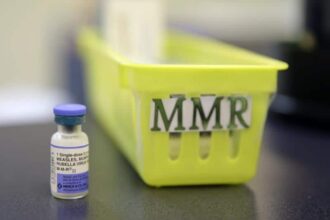In a contentious development that has ignited debate across British Columbia’s political landscape, Opposition Leader John Rustad is demanding transparency regarding a $10.5 million consulting contract awarded to Dr. Gabor Maté, a renowned addiction expert appointed to advise the provincial government on mental health and addiction policies.
The controversy emerged during a heated question period in the B.C. legislature, where Rustad challenged Premier David Eby to disclose specific details about the substantial contract awarded in February. “The premier has hired an adviser who believes addiction isn’t a disease, it’s a response to childhood trauma and that methamphetamine is not dangerous,” Rustad asserted, highlighting fundamental disagreements with the province’s approach to the addiction crisis.
Premier Eby defended the appointment, emphasizing Dr. Maté’s international reputation and expertise in addressing complex addiction issues. “We need to learn from people who have been successful in addressing these issues,” Eby countered, while acknowledging the sensitivity of addiction approaches across political divides.
At the center of this dispute is Dr. Maté’s unconventional perspective on addiction treatment, which some critics argue conflicts with evidence-based medical consensus. His appointment represents part of British Columbia’s broader strategy to combat a devastating public health emergency that has claimed over 15,000 lives since 2016 due to toxic drug overdoses.
Mental Health and Addictions Minister Jennifer Whiteside further justified the decision, noting Dr. Maté’s credentials as “an internationally renowned expert on trauma, addiction, stress and childhood development.” According to provincial officials, the controversial contract encompasses not only Dr. Maté’s advisory services but also includes funding for his team and operational expenses associated with his role.
The political tension surrounding this appointment reflects deeper ideological divisions about effective approaches to the province’s drug crisis. The BC Conservative critique aligns with their party’s emphasis on treatment-based recovery models, while the governing NDP has implemented harm reduction strategies alongside expanded treatment options.
Public health experts from across Canada have weighed in on the debate, with some supporting innovative approaches to addressing addiction while others express concern about potential departures from established medical protocols. The controversy highlights the challenge of balancing diverse perspectives when addressing complex public health emergencies.
For British Columbians directly affected by the addiction crisis, these political debates have profound implications. Community advocates have expressed mixed reactions, with some welcoming fresh perspectives and others fearing potential disruptions to existing treatment frameworks.
As this controversy unfolds, the fundamental question remains: in addressing a crisis of this magnitude, what balance of conventional and innovative approaches will ultimately prove most effective in saving lives? The answer may shape not only British Columbia’s response to addiction but potentially influence health policies across the country.

























